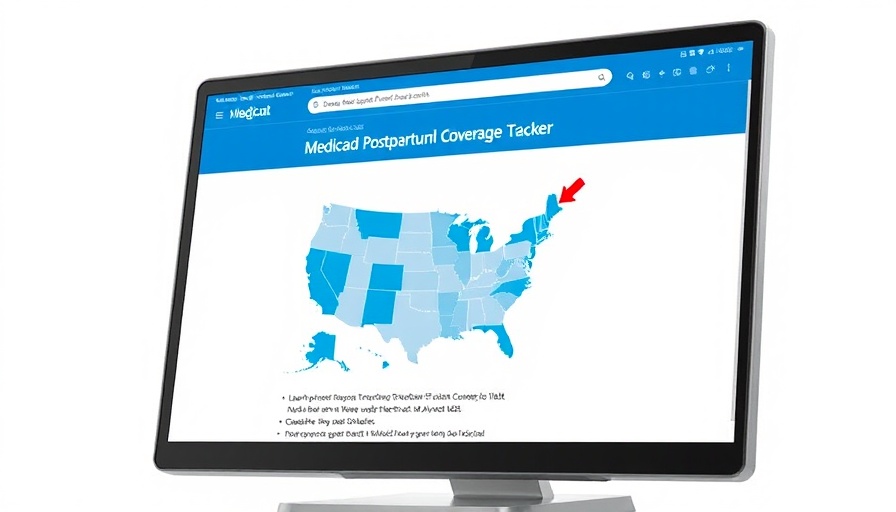
Understanding the Need for Extended Medicaid Coverage
Medicaid plays a crucial role in financing births across the United States, covering around 40% of deliveries. The federal mandate requires states to provide pregnancy-related Medicaid coverage for 60 days postpartum, a brief window that often isn’t enough to ensure the well-being of new mothers. Many individuals, particularly in states that have not expanded Medicaid, find themselves losing coverage shortly after this period. This lack of ongoing support can lead to significant challenges in health management during a critical recovery phase.
The American Rescue Plan's Impact on Maternal Health
In response to these challenges, the American Rescue Plan Act of 2021 introduced provisions for states to extend Medicaid coverage to 12 months post-birth through a state plan amendment (SPA). This initiative aims to bolster maternal health outcomes and help address racial disparities that have long plagued maternal health statistics. Originally set to last for five years, this extension became permanent under the Consolidated Appropriations Act 2023, indicating a pivotal shift towards prioritizing maternal health in America.
State Actions: Tracking Progress and Implementation
As of January 2025, various states are at different stages of implementing these important changes. Some have successfully introduced a 12-month postpartum coverage extension, while others are still navigating the legislative and approval processes required to make this happen. This tracking of state actions highlights an evolving landscape in maternal healthcare, showing progress but also reflecting disparities that remain depending on state policies.
The Future of Maternal and Child Health
The movement towards extended Medicaid postpartum coverage is not just about policy; it’s about the health, stability, and peace of mind for new mothers and their families. Ensuring that mothers have access to the care they need for a full year after childbirth has the potential to significantly improve health outcomes, reduce disparities, and enhance quality of life for families all across the country.
As Medicaid programs evolve, continued advocacy, awareness, and community engagement will be essential in promoting and implementing policies that support maternal and child health. The journey towards equitable healthcare is ongoing, but steps like these signal hope for a broader understanding and support for the challenges mothers face postpartum.
 Add Row
Add Row  Add
Add 




Write A Comment